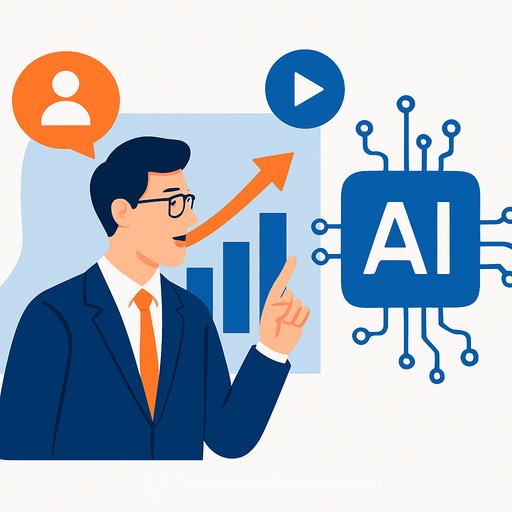The Importance of Trust and Authenticity in AI-Powered Marketing
As artificial intelligence (AI) becomes more integrated into marketing, brands must focus on trust, authenticity, and genuine human connection. This was a key message at the Smartly Connect Singapore event, where industry experts discussed the rise of Intelligent Creative—AI-driven advertising that combines data, automation, and emotional relevance.
The event attracted marketing professionals from across the APAC region and covered topics from budget constraints to creative challenges. The core takeaway was clear: purpose and creative intelligence remain critical even as AI reshapes the advertising landscape.
Key Insights from Industry Leaders
Laura Desmond, Smartly’s global CEO and a board member at Adobe, highlighted the urgency of speaking to consumers on a personal level amid rapid industry changes. She stressed that trust is the foundation of any relationship between brands and consumers.
“Without trust, there is nothing,” Desmond said. She reminded marketers that despite advances in AI, it’s still about people connecting with people. Technology can never replace the human element in brand relationships.
Research Findings on Consumer Expectations
New research shared at the event revealed that 50% of marketers struggle to connect with consumers across multiple platforms. Additionally, 74% of marketers said consumers now expect more personalised experiences, while 71% of consumers consider brand trust more important than ever.
Desmond emphasised that being “AI first” is necessary but must not come at the expense of creativity. AI should simplify advertising’s complexity, enabling marketers to develop big ideas with scale and variation. She pointed out that old workflows won’t work with AI; processes must be rethought and redesigned to succeed.
The Role of AI in Advertising
AI can shorten the path from concept to intelligent ad by analyzing real-time consumer engagement. This allows marketers to create relevant, timely content that resonates.
Trust begins with the quality of messaging and creative execution. According to an eMarketer report, 85% of consumers are more likely to trust brands that deliver well-designed, high-quality advertising.
Smartly demonstrated these principles with its AI Studio, which reduces the time needed to launch campaigns across channels. The platform optimises creative for individual platforms while maintaining brand consistency, as explained by Chi Yu, Smartly’s AI Studio product lead.
Innovations and Future Directions
Smartly Intelligence provides real-time data that helps marketers fine-tune campaigns according to audience response. Recognised as a leader in The Forrester Wave: Creative Advertising Technologies Q4 2024, Smartly also boasts 3.3 times faster campaign setup and reporting compared to competitors, according to PwC analyses.
Under APAC CEO Bertilla Teo, Smartly prioritises the region’s market needs. Future developments include Google’s Veo3 for customizable video creation, agentic AI systems that collaborate to perform human-like tasks, and multimodality technology that delivers messages across multiple channels.
Changing Consumer Behaviors
Consumer attention spans are shortening. Sapna Nemani from Publicis Groupe noted that average engagement with an ad dropped from 10 seconds five years ago to just 2 seconds today. This forces brands to shift focus from quantity to meaningful messaging.
“Purpose has come back,” Nemani said. She highlighted the importance of tracking long-term metrics and considering the full consumer journey rather than isolated touchpoints.
Asha Gourinath from Grab stressed the value of “creativity, variety, and velocity.” Short-form, seasonal campaigns with video content work well, but long-form content remains effective if refreshed every three to four weeks.
Conclusion
Theseus Chan, founder of creative studio WORK, reminded attendees that spontaneity and invention will always matter. AI tools can produce visuals quickly, but they follow built-in logic and lack true creative deviation.
“AI is a tool… but it’s too easy now to prompt AI. You can do a visual in a few seconds that 20 years ago would have taken a few weeks,” Chan said. He warned that perfect AI-generated content may eventually lose its appeal because it lacks imperfection and surprise.
For marketers, this means blending AI’s efficiency with authentic creativity and trust will be essential to stand out and build lasting connections.
Your membership also unlocks:






